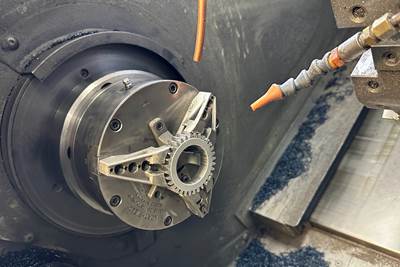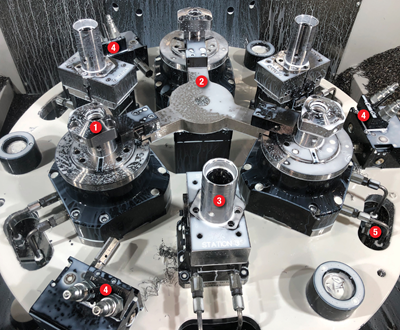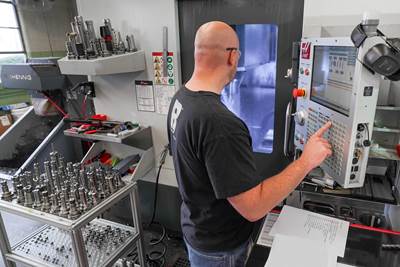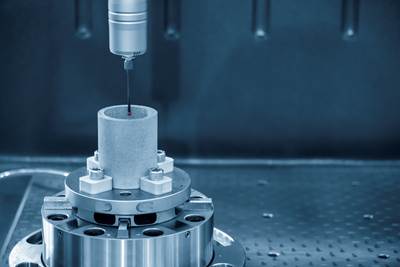Workholding
Workholding refers to any device that is used to a secure a workpiece against the forces of machining. The most basic workholding device is a simple clamp, but workholding can also involve complex fixtures that are custom-built for particular parts. Other common workholding devices include vises and chucks, as well as indexers or rotary tables that are able to change the part’s position while it is held, so the machine can reach various features. In most machining applications, workholding also locates the part. On a machining center, for example, a vise or fixture may also provide the precise position and orientation where the machining program expects to find the workpiece.






ESSENTIAL READING
VIEW ALLCustom Workholding Principles to Live By
Workholding solutions can take on infinite forms and all would be correct to some degree. Follow these tips to help optimize custom workholding solutions.
Read MoreA Case for Combining Workholding with Optical Scanning
Automotive dies and die inserts are often complex, one-off parts with little room for error. Integrity Tool's investments in modular workholding tools and 3D optical scanning have allowed the company to create niche capabilities for its CNC machined parts.
Read MoreWhen To Use A Collet Chuck
Don't assume the standard chuck is the right workholding for every lathe application.
Read MoreWorkholding 101
No universal workholding solution exists, so machine shop employees should have a basic understanding of multiple ways they can secure workpieces.
Read More3 Uses for a Composite Polymer 3D Printer in a CNC Machine Shop
When RPG purchased its metal 3D printer, a polymer printer was part of the deal. Three uses this job shop has found for this fused filament fabrication system.
Read MoreVacuum Workholding for Thin Parts: First Episode of The One-Person Shop
A new video series looks at technology and practices for thriving as a very small machining business. In this episode, how workholding using air pressure permits rapid setup of parts too delicate to be held in a vise.
WatchLatest Workholding News And Updates
Dillon Hard Jaws Enhance Small Diameter Machining
Dillon Manufacturing’s extra-long hard jaws feature extended reach, making them well suited for machining small diameters.
Read MoreMate Workholding System Maximizes Repeatability
The company has enhanced its 52/96 zero-point workholding system with a new vise, collets machinable hard jaws and more.
Read MoreHandling Heavier Parts and More with EROWA
Refined machines at EROWA are handling heavier loads, while its precision workholding enhances stability and rigidity.
Read MoreHWR Workholding Systems Facilitate Process Automation
IMTS 2024: HWR Workholding is showcasing a range of workholding systems designed for milling and turning applications.
Read MoreWalter USA Acquires PDQ Workholding
Walter USA has acquired PDQ Workholding, intending to strengthen its offering of workholding products and develop future cutting tool sales.
Read MoreFixtureworks Workholding Products Support Range of Use Cases
IMTS 2024: Fixtureworks highlights a variety of its clamping, fixturing, positioning and workholding products, as well as its machine tools and components.
Read MoreFeatured Posts
Using Automation to Reduce COGS and Stay Globally Competitive
Decade-long, multiphase automation investments lower operating costs and maintain technology lead in an increasingly competitive global market.
Read MoreChuck Jaws Achieve 77% Weight Reduction Through 3D Printing
Alpha Precision Group (APG) has developed an innovative workholding design for faster spindle speeds through sinter-based additive manufacturing.
Read MoreMachining Vektek Hydraulic Swing Clamp Bodies Using Royal Products Collet Fixtures
A study in repeatable and flexible workholding by one OEM for another.
Read MoreMedical Shop Performs Lights-Out Production in Five-Axes
Moving to five-axis machining enabled this shop to dramatically reduce setup time and increase lights-out capacity, but success relied on the right combination of workholding and automation.
Read MoreShop Doubles Sales with High-Mix, Low-Volume Automation
Robots with adaptive grippers have opened entire shifts of capacity to high-mix, low-volume shop Précinov, doubling its sales.
Read MoreParts and Programs: Setup for Success
Tips for program and work setups that can simplify adjustments and troubleshooting.
Read MoreFAQ: Workholding
What is workholding?
Workholding refers to any device that is used to a secure a workpiece against the forces of machining. The most basic workholding device is a simple clamp, but workholding can also involve complex fixtures that are custom-built for particular parts. Other common workholding devices include vises and chucks, as well as indexers or rotary tables that are able to change the part’s position while it is held, so the machine can reach various features.
When should you use flexible workholding?
For shops that handle short-run and one-off jobs, flexible workholding is key to producing work cost-effectively. This might involve quick-change workholding that speeds setups, or solutions that leave the sides of parts free for machining, requiring fewer setups.
When should you use automation-ready workholding?
As more shops add automation, they will need workholding systems that are compatible with the systems they’ve implemented, whether they’re robots, pallet systems or something else.
When should you use ID Workholding?
ID workholding, such as expanding mandrels, has a number of benefits and is suited to a range of applications. These fixtures can provide full access to a part’s OD, providing a rigid, even hold that increases accuracy.
What are some tips to consider when using five-axis workholding?
1. Size the Five-Axis Machine Correctly
2. Consider Augmenting Dovetails
3. Get Out of Your Comfort Zone
What is a collet chuck?
The collet chuck is an alternate workholding device that, like the jaw chuck, also uses mechanical force to hold the part being turned. While a collet chuck lacks the capacity for the same wide range of workpiece sizes that a jaw chuck can accommodate, it offers advantages related to speed, accuracy and productivity that may be crucial for certain jobs.
Source: When To Use A Collet Chuck
Workholding Supplier Categories
- Chucks, Self-Contained
- Dividing & Indexing Heads
- Actuators, Hydraulic & Pneumatic
- Chucks, Gear
- Vises & Vise Jaws
- Mandrels
- Guide Bushings (for Swiss Lathes)
- Angle & Sub Plates
- Chucks, Special
- Chucks, Collet Type (for Workholding)
- All Other Workpiece Handling, Loading & Feeding Equipment not specified
- Indexers & Rotary Tables
- Collets for Workholding
- Clamps & Fixturing Devices
- Chucks, Precision
- Steady Rests
- Centers, Live & Other
- Pedestal Type Fixtures & Tombstone Blocks
- Chucks, Magnetic
- Fixturing Systems
- Workholding, Custom
- Chuck Jaws & Collets
- Chucks, Index
- Chucks, Power
- Chucks, Diaphragm
- Arbors, Expandable Workholding
- Chucks, Vacuum
- Chucks, Jaw Type












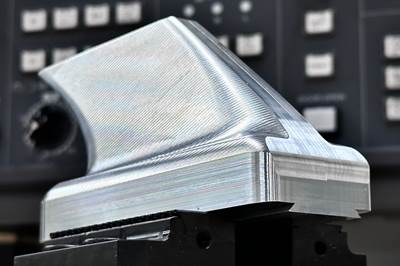
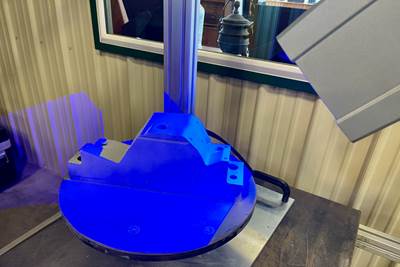
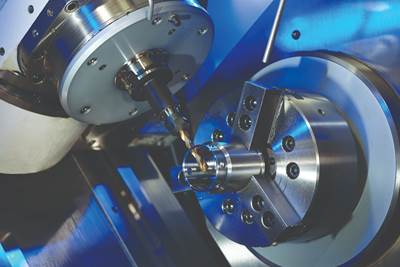
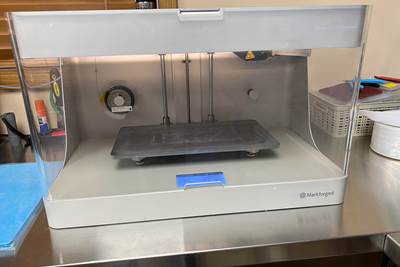
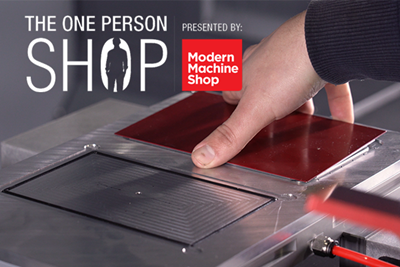

.jpg;maxWidth=300;quality=90)















